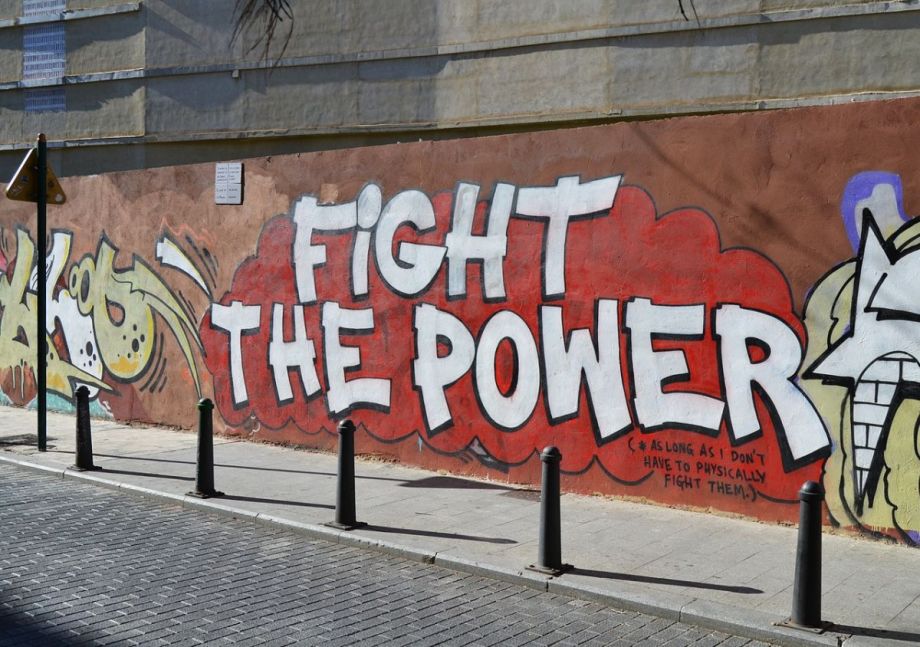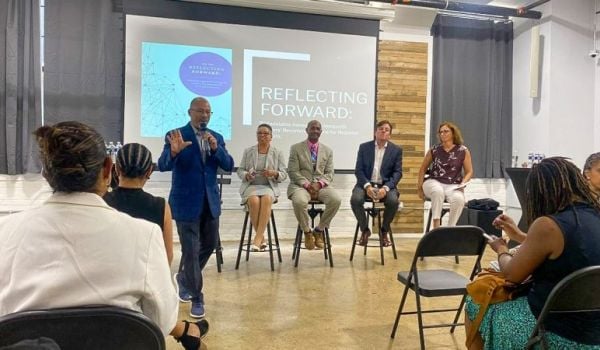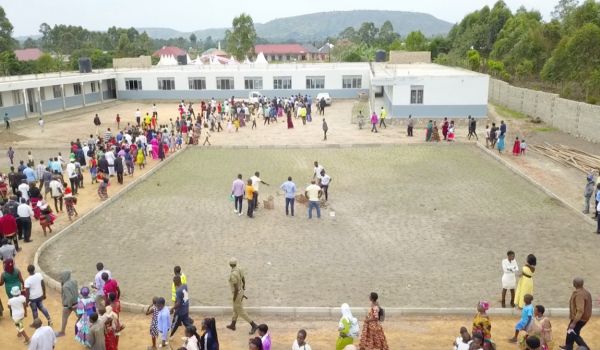EDITOR’S NOTE: This sponsored content is paid for by the Center for Cultural Innovation (CCI), as part of its AmbitioUS initiative. This series explores how alternative economic models can empower artists and culture bearers, with an eye toward financial freedom and long-term sustainability. You can find other stories in this series here.
Vu Le hasn’t always been a troublemaker.
A first-generation Viet American, he hails from all over. He and his parents landed in Philadelphia when they first came to the States, then moved to Seattle and again to Memphis as he grew up. His parents, he adds, “think I’m kind of weird.”
“I went vegan when I was 13. I’ve always kind of gone against the grain,” he says wryly.
And after more than a decade leading nonprofit work, he’s stirring things up again. At the helm of a blog he calls Nonprofit AF (short for Nonprofit and Fearless, he tells Next City), he’s constantly and openly criticizing many of the field’s practices, which he says often leave behind the very communities they profess to serve.
Le came to nonprofits because he was interested in working with Vietnamese communities in the U.S. But once he started, he noticed that those communities weren’t always being centered in his work. For example, it was his job to rush Viet elders — some of whom had dedicated their time and energy for decades — off leadership boards, in order to ensure what nonprofits thought of as healthy turnover. But that didn’t feel respectful of what they’d contributed, or consistent with the community’s values.
It made Le wonder: what else wasn’t clicking? If these were “best” practices, his question was, best for whom?
He attributes much of that disregard to a lack of diversity among leaders who hold positions of power in this sector. A recent research report notes that 92% of foundation presidents and 83% of full-time staff members are white. The report — a collaboration between The Bridgespan Group and Echoing Green — also suggests that a majority of philanthropic funding supports white-owned nonprofits — in part because funding is relationship-driven, and three-quarters of white people have entirely white social networks. Other barriers to entry such as implicit bias and uneven standards likewise disadvantage leaders of color.
That imbalance in power reinforces something that Le — and multiple community activists and organizers — refer to as the non-profit industrial complex: a system where an organization’s ability to create radical change is limited by its reliance on funders and impaired by a (conscious or unconscious) desire to maintain the status quo.
“There’s a sort of white moderation that we’ve all been inundated with, we’ve all internalized, where we want to change the world but we don’t want to rock the boat,” Le says. “We don’t want to offend people, we don’t want to think about how we are complicit because we are dependent on the existence of inequity for our own livelihood.”
In other words, nonprofit workers — regardless of their ideals — have an unconscious personal interest in maintaining inequity in order to maintain job security. It’s a somewhat cynical take. But, Le insists, it doesn’t have to stay that way.
“We need to think about how we are complicit in perpetuating the injustice we’re trying to fight,” he adds. “What are we willing to give up? How do we rock the boat? … Those of us who are more privileged, we need to rock the boat more often. [We] might have to be willing to fall out of the boat.”
In 2014, Le founded the Rainier Valley Corps (RVC), modeled partially off the Americorps program and designed to sponsor leaders of color from the community to do nonprofit work with Seattle-area organizations. Around the same time, he began blogging for Nonprofit AF, critiquing various aspects of the nonprofit sector: how new projects are developed; how grant applications restrict funding flow; how board leadership makes critical decisions; and more.
Ananda Valenzuela, currently the interim Executive Director of RVC, says they came to the organization in large part due to Le’s leadership.
“I think [the RVC is] doing something really innovative, in terms of being deeply place-based and focused on changes in our own communities… and in believing at a fundamental level that the best people, the most well-equipped people, to effect systemic change in our society are the folks most impacted by injustice,” says Valenzuela.
But it’s challenging for nonprofits to support organizations such as the RVC, in part because their needs don’t always align with funders’ interests.
“We’ve been reinforcing the message to donors that we just need to find something they care about and connect them to it — they care about homelessness, they care about jobs, they care about kids,” Le says. But those aren’t the only issues that affect communities. “[Donors] don’t want to think about human trafficking, they don’t want to think about the fact that the police have been killing Black people, they don’t want to think about the murders of Black trans women, you know, missing and murdered Indigenous women. These are not things that are warm and fuzzy… we’ve become a clearinghouse of extracurricular activities for rich white people.”
Valenzuela concurs. “The nonprofit sector is steeped in white supremacist culture… the history of nonprofits is one of rich white women in particular, starting charities [in] their free time, coming from that place of power as rich white women who didn’t need to have a job,” they add.
“And so I think you have to look at the source of our sector and sit with how that impacted how we operate today… there’s this intersection [that nonprofit work has] with the concept of the white savior complex, where people think they can come in and fix problems they don’t know anything about.”
Le’s of the opinion that nonprofits should care less about donor interests, and more about advancing equity. That’s why, in 2019, he left the Rainier Valley Corps in capable hands and began blogging full time, calling out the ways that nonprofit boards and their best practices could distract from — and even obstruct — actual community change.
His posts haven’t exactly made him popular.
“I get into trouble all the time,” he adds, laughing. “There’s quite a few people who really hate my guts.”
In the beginning, that’s because Le’s criticism seemed contentious — “like biting the hand that feeds you,” says Liahann Bannerman, who directs the volunteer center at United Way of King County and maintains a funding relationship with RVC. She’s also known Le for years; they graduated from the same board training program for leaders of color.
“Everybody in the nonprofit sector was sort of like, ‘Oh, my God… we can’t tell our funders what to do, we can’t push back on them.’ But he started doing that, and there were some funders who had challenges, [and] some who reflected on what he said and came back again to dig deeper and to make changes.”
Bannerman doesn’t always agree with Le on the issues that affect them both. She considers herself an advocate for working “within the system as well as outside of it,” and the two sometimes differ on what that looks like.
But ultimately, she says, she appreciates the work he’s doing. She thinks many funders agree.
Part of it lies in his ability to present hard truths alongside funny analogies — like the way he explains nonprofit leadership structures using Star Trek references — or his tendency to crack irreverent jokes as often as he calls out structural inequities, in everything from his mission statement to his contact page.
Plus, Le acknowledges, he’s still on this journey himself: “I get called out for stuff all the time… I have to understand my own privileges.” Most recently, he’s been learning about disability and neurodiversity, working to incorporate issues of access as well as race and gender equity into his work.
“I think I’m exactly where I’m supposed to be: being a rabble-rouser,” says Le. “I like throwing wrenches into the system — asking, why are we doing things this way? Is it really working?”
Hannah Chinn is a freelance writer for Next City. She's also a reporter for WHYY News, covering watershed and environmental issues in Philadelphia, PA. Previously, she reported neighborhood news and city planning and policy stories for WHYY’s PlanPhilly.















